Spanish Mental Health Trainings Go Far Beyond Translation
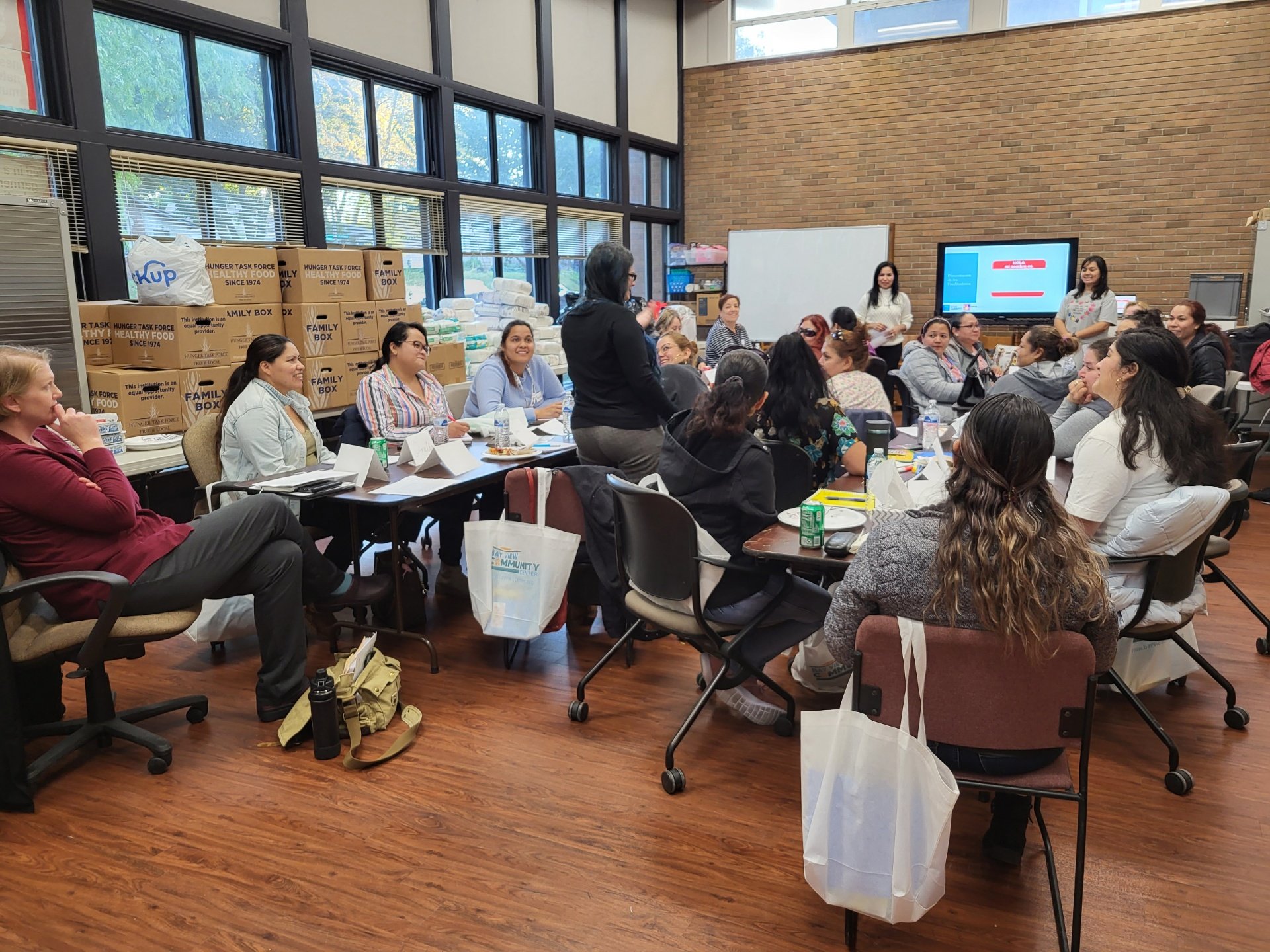
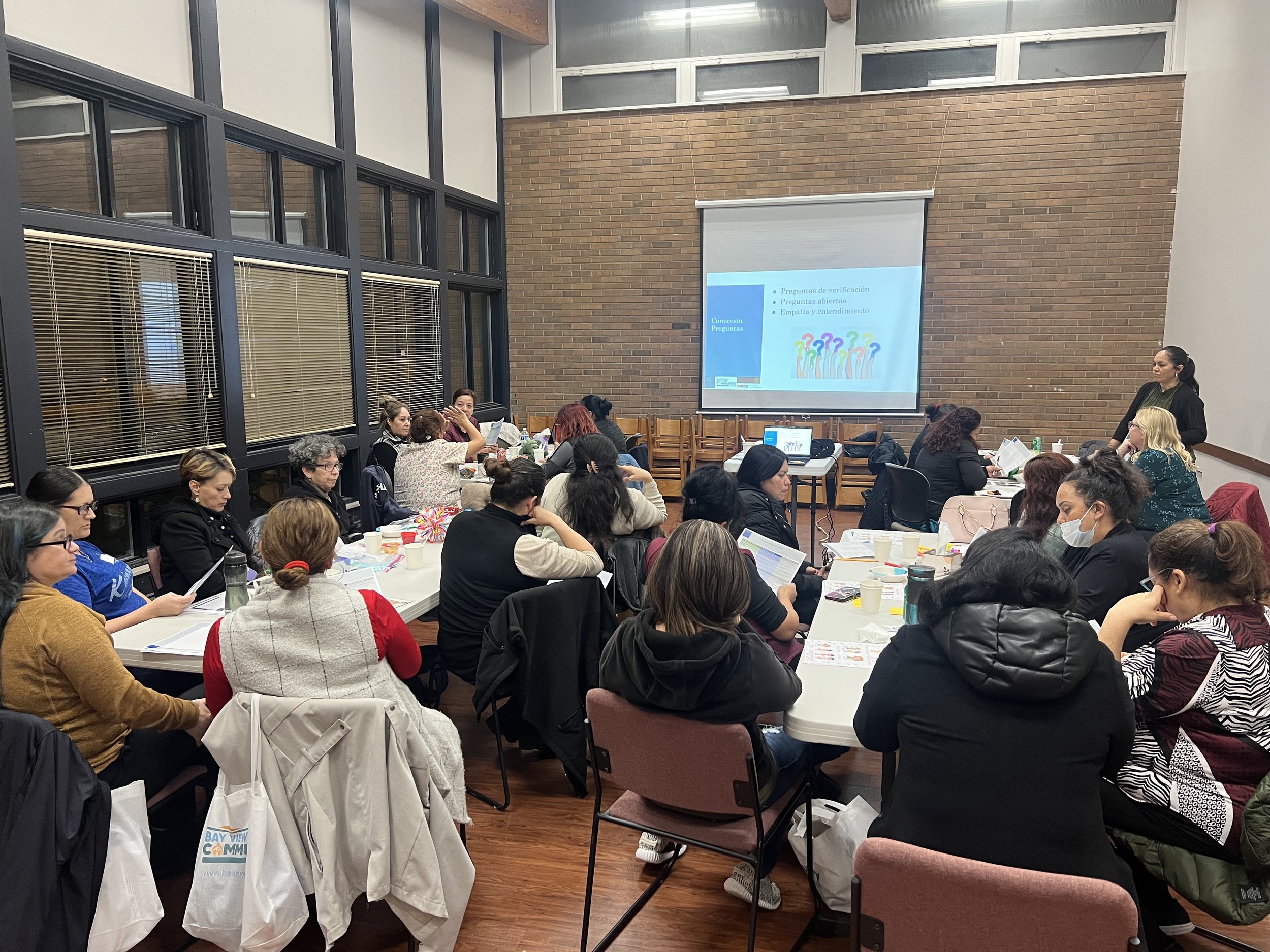
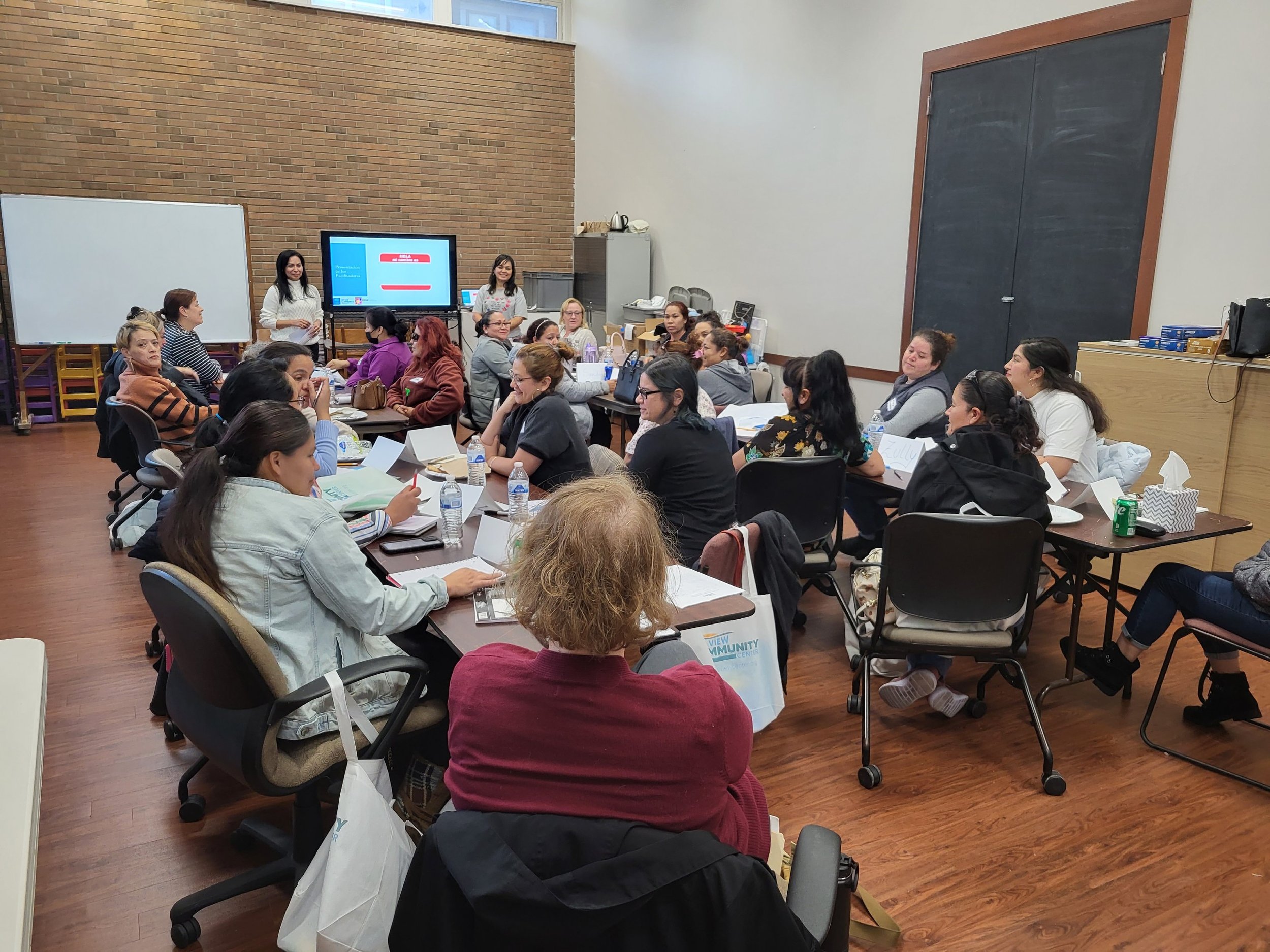
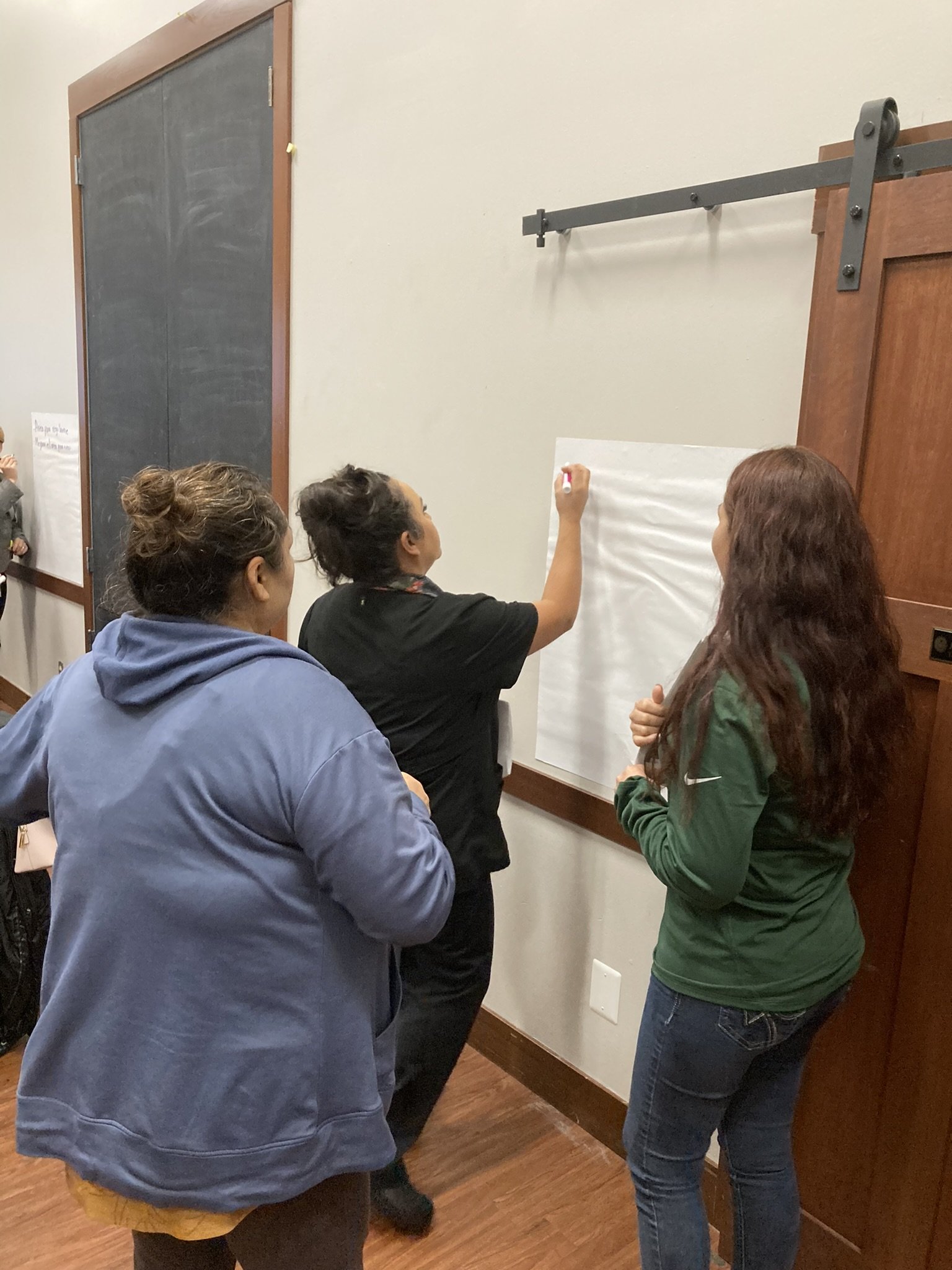
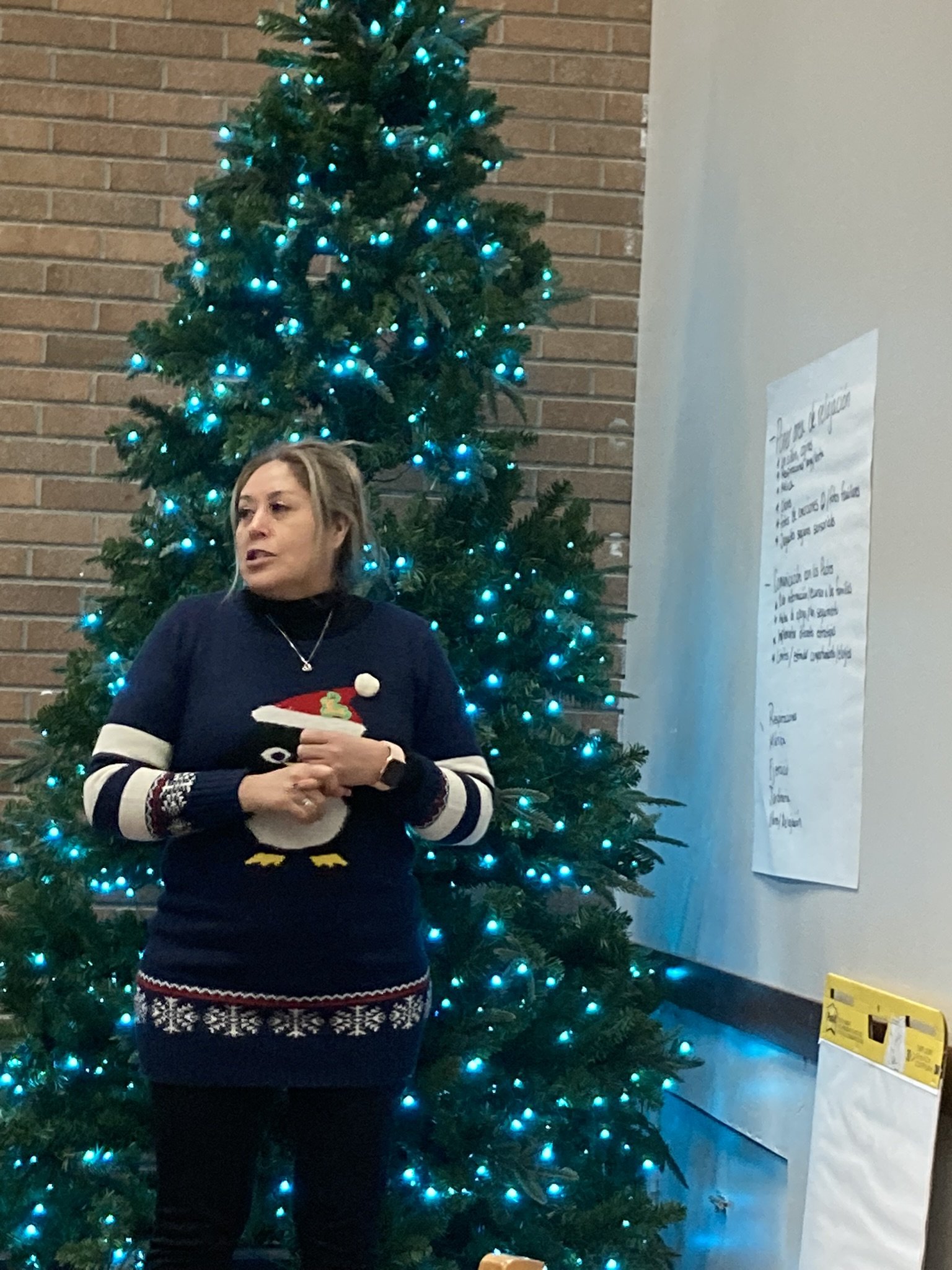
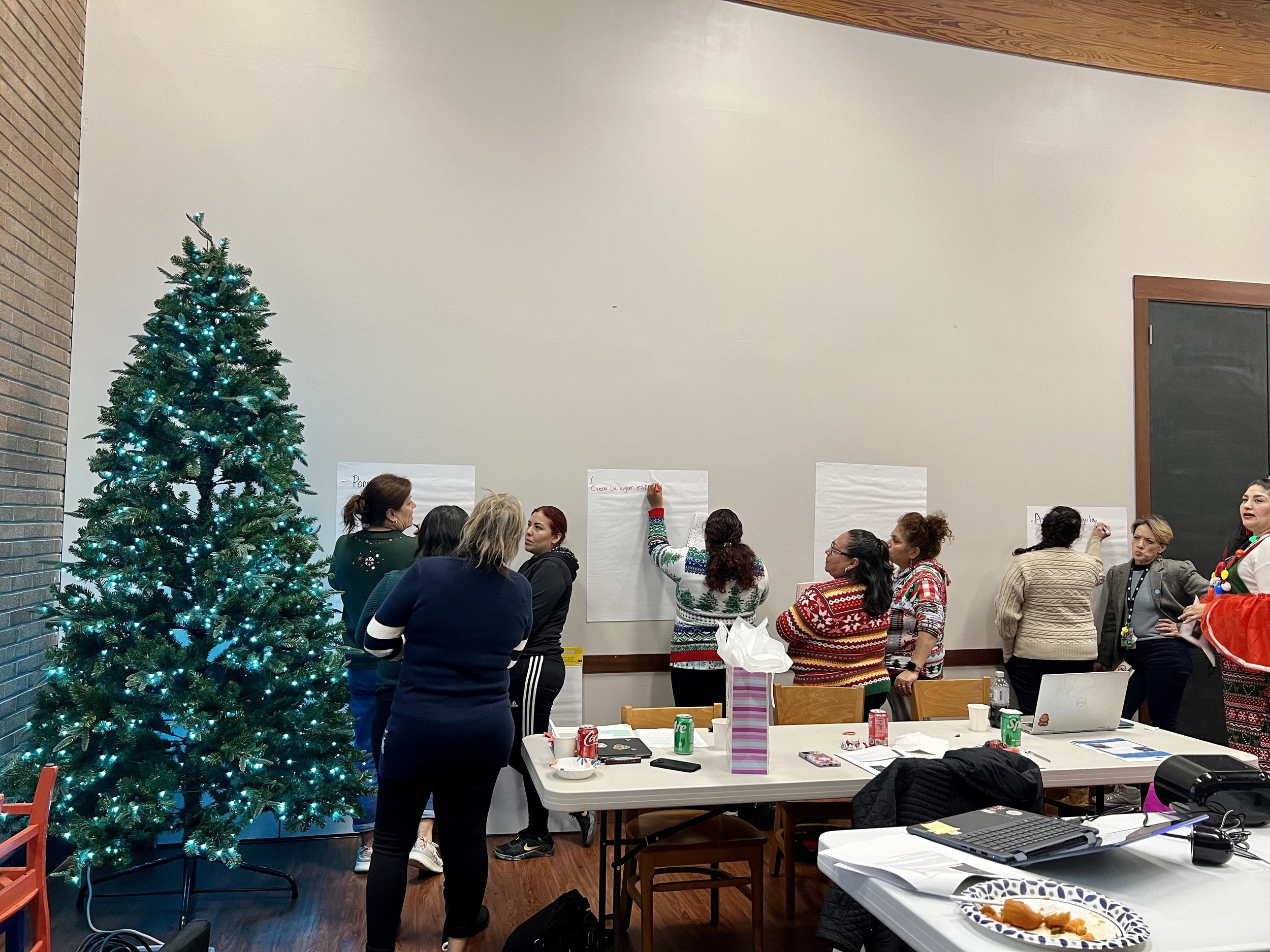
“Culturally, as a Hispanic woman, you’re never first. You have to help everyone else. You have to give, give, give,” said Yimma Davila-Castro, owner of Yimma’s Bright Beginnings Daycare and a longtime member of the MKE Early Childhood Education (ECE) Coalition.
In 2023, Yimma and fellow coalition members Sara Daniel of Daniel Educational Services and Diana Billstrom, director of family learning and community engagement at the Bay View Community Center, set out to change this. By developing a mental health curriculum specifically designed for Milwaukee’s Spanish-speaking community, they prioritized the unique needs and experiences of this often-overlooked population.
This training, which took place toward the end of 2023, aimed to address the high levels of stress, compassion fatigue and secondary trauma which our early educators are experiencing. It acted as a pilot, with plans to expand across Milwaukee – and hopefully the state as a whole – in the coming months and years. The results from this initial set of trainings were released this January in a report titled Beyond Translation: Evaluating a Culturally Relevant Mental Health Training for Spanish-Speaking ECE Providers.
Background
Mental health has been a key focus area for the ECE Coalition since the start of the pandemic. Our already stressed and overworked educators found themselves as essential workers, supporting the rest of the workforce while caring for children who were suddenly experiencing new and unfamiliar stressors.
In response, the ECE Coalition and its partners raised funding from Milwaukee County, the MKE Responds Fund and the Greater Milwaukee Foundation to support regulation trainings, ultimately serving over 350 educators in predominately Black and Brown communities. After the clear success of these trainings, they were expanded and adapted for families of young children, with over 500 parents and caregivers taking part. (Check out our Success Story to learn more!)
While Spanish translations and interpretation were available, it quickly became clear that more could be done to support and better serve this population.
“We knew that it would hit so much different if [trainings] were developed with Spanish providers in mind and also delivered in Spanish,” said Sara Daniel. “So we set about the task of trying to make that happen.”
The Trainings
Using funds from the Wisconsin Early Childhood Association (WECA) and the Wisconsin Early Education Shared Services Network (WEESSN), a series of trainings, resources and activities were developed for Latina early educators. This work was done in collaboration with members of Proveedoras Unidas, a professional network of Spanish-speaking family child care providers.
The series of six training sessions covered a range of mental health and well-being topics, including co-regulation, joining/relationships, positive identity and demonstration, and help and responsibility.
“Obviously we can’t cover wellbeing and mental health in six sessions,” said Diana Billstrom, “but we give them the general bedrock to help them start developing these habits.”
Interest in the program was clear from the start, with the number of applicants exceeding the number of openings. 22 Spanish-speaking providers were selected to take part, with each being paid for their time and feedback.
From the outset, the trainers created a safe space in which these providers could learn, share their experiences and issues, and evolve as educators.
“When we are in an environment where everyone speaks the same language, they feel more comfortable,” shared Yimma Davila-Castro. “People opened up right away.”
Each block of content included activities and opportunities for participants to move around and collaborate, as well as examples and tools they could incorporate into their teaching. The trainers also made sure to build in time for the educators to ground themselves and decompress.
“The training focused on adult well-being first as the foundation to the well-being of children,” explained Diana.
One particular area of focus was understanding the various parts of the brain and how they function. According to Sara, if the brain doesn’t think it’s safe, it won’t be able to properly take in information or make decisions. That’s why it’s so critical to create a safe space where children – and adults – are able to express themselves. Participants learned about sensory areas and other strategies they could use to help regulate themselves and the children in their care.
Evaluation
“This is the first project I’ve worked on where we asked participants what they think,” said Yimma.
This feedback was essential to the continual improvement process, ensuring that each week’s training was better than the one before. For instance, several participants mentioned logistical issues like not being able to see the screen or not having access to handouts. After this feedback, all participants were given printed copies of the slides. Another issue was the desire for more hands-on activities and more opportunities for people to get to know each other, which were also incorporated into the weekly trainings.
The evaluation also measured the general effectiveness and impact of the trainings, showcasing overwhelmingly positive results. Almost 100% of participants agreed that the trainings increased their knowledge, with the most beneficial areas being the specific techniques and tools they learned. In addition, almost 100% of participants agreed that they can take what they learned and use it in their classrooms.
When asked how they would be implementing these trainings, the early educators responded that they would be creating sensory spaces for children to relax, sharing the techniques with families, making more time for themselves, normalizing the practice of talking about their feelings, and incorporating music and dance into their classroom activities.
Survey results also showed a small increase in compassion levels and a slight decrease in burnout and secondary traumatic stress among participants.
“While we can’t say that it’s a direct result of the trainings, it is still a positive sign,” said Kristin Kappelman, Milwaukee Succeeds’ director of research.
Next Steps
“One of the most moving parts for me was that this was created for them,” shared Sara. “They said, ‘Finally, we’re first. It’s not just something changed or retrofitted for us. This was created for us, and we’re the pilot.’”
This pilot represents Phase 1 of the trainings. In phase two, funded by the Greater Milwaukee Foundation and WECA-WEESSN, six of these 22 participants will be trained to become trainers. This will allow the program to expand, reaching even more providers across Milwaukee and, eventually, Wisconsin.


